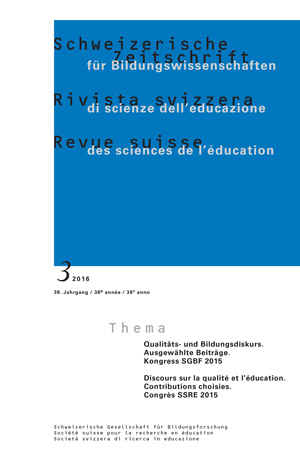How teachers can promote co-regulation and co-construction of a skilled approach in mathematical problem solving at the end of primary education
Abstract
The present study experiments the impact of a teaching device centered on mathematical complex tasks among primary education pupils (grade 6) in French-speaking Belgium. This device is based on the characteristics of the powerful learning environment (De Corte & Verschaffel, 2008) on the one hand, and on Allal (2007, 2011) and Mottier Lopez (2012) researches about interactive regulations and coregulation on the other hand. The study combines a quasi-experimental design with qualitative data analysis. The results show that the teaching device leads to an improvement of pupils skills (or an increase of performance), including among low achievers, if an appropriate scaffolding is provided. Comparisons between experimental and control groups highlight the importance of the teacher’ role in order to improve pupils mathematical reasoning.
License

This work is licensed under a Creative Commons Attribution 4.0 International License.



